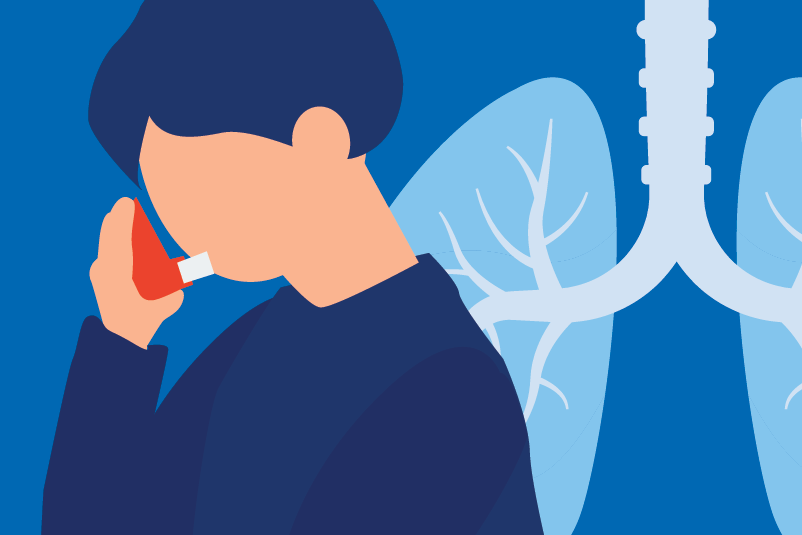#230 Less puffing, more breathing? Intermittent inhaled steroids for asthma

Reading Tools for Practice Article can earn you MainPro+ Credits
Join NowAlready a CFPCLearn Member? Log in
- Focusing on two large (~4000 patients each), industry managed, randomized, double-blind, placebo-controlled trials (RCTs) in mild persistent asthma (controlled on low-dose daily ICS or uncontrolled with Short-Acting Beta-Agonist alone).1,2 Mean age ~40; ~20% had severe exacerbation in preceding year. Included patients randomized to budesonide/formoterol PRN or budesonide 200mcg BID + terbutaline PRN after a 2-4-week run-in of terbutaline only. Outcomes at 1 year (study results combined when similar outcomes reported):
- Patients with ≥ exacerbation:
- Severe exacerbations (oral steroids, hospitalization or emergency department visit with systemic corticosteroids):1,2
- Budesonide/formoterol PRN 7.4%, daily ICS 7.8%: not statistically different.
- Moderate to severe exacerbations:1
- Budesonide/formoterol PRN 10.3%, daily ICS 11.2%: not statistically different.
- Severe exacerbations (oral steroids, hospitalization or emergency department visit with systemic corticosteroids):1,2
- Symptoms:
- Asthma Control Questionnaire-5 (ACQ-5): nighttime waking, symptoms on waking, activity limitation, shortness of breath, wheeze:
- Proportion with improvement of ≥ 0.5 points (minimally clinical important difference):1,2
- Budesonide/formoterol PRN 41%, daily ICS 46%, Number needed to harm (NNH)=20.
- Number of weeks with well controlled asthma:
- Budesonide/formoterol PRN 18 weeks versus 23 weeks.1
- Asthma Quality of Life Questionnaire: no clinically meaningful difference.1,2
- Proportion with improvement of ≥ 0.5 points (minimally clinical important difference):1,2
- Adverse events: similar.1,2
- Total ICS exposure was ?60-70% lower with intermittent treatment.1,2
- Asthma Control Questionnaire-5 (ACQ-5): nighttime waking, symptoms on waking, activity limitation, shortness of breath, wheeze:
- Patients with ≥ exacerbation:
- No difference in risk of exacerbation.
- Fewer asthma-controlled days with intermittent versus daily ICS.
- For children: daily ICS resulted in ~0.5cm less growth (height) at ~1 year.3
- Up to 75% of asthmatics have mild asthma.4
- Guidelines recommend daily ICS for mild persistent asthma,5 but only ~50% adhere.6
- Intermittent ICS or ICS/LABA use, compared to daily ICS, results in less overall steroid use1,2 and potential cost savings.7,8















Interesting data